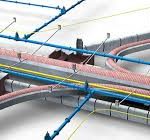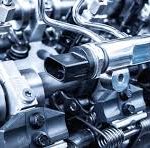Course Overview:
The “Installation of Sanitary Sewer Networks” course aims to equip participants with the knowledge and skills needed to efficiently design and install sanitary sewer systems. Participants will learn about the basic components of sewer networks, the principles for selecting materials, and the various stages of installation from both practical and engineering perspectives.
Course Objectives:
- Introduce participants to the components of sanitary sewer systems and their importance.
- Train participants on how to design and install sanitary sewer systems according to industry standards.
- Teach participants the correct methods for selecting the materials and tools used in the installation.
- Provide participants with practical skills to handle different field conditions during installation.
- Ensure participants gain the knowledge necessary for regular maintenance of the system to maintain efficiency.
Training Content:
- Introduction to Sanitary Sewer Networks:
- Importance of sanitary sewer networks.
- Different types of sewer systems.
- Basic Components of a Sewer Network:
- Pipes and valves.
- Manholes and collectors.
- Pumps and auxiliary stations.
- Design and Installation Standards:
- Criteria for selecting appropriate materials and pipe sizes.
- Designing network paths to ensure proper water flow without issues.
- Field Installation Procedures:
- Excavation and pipe laying methods.
- Connection and fastening techniques.
- Pressure testing and leakage detection.
- Maintenance and Operation:
- How to regularly inspect sewer networks.
- Solutions to common issues like blockages and leaks.
- Safety procedures during maintenance.
Target Audience:
- Civil and environmental engineers.
- Technicians specialized in the installation and maintenance of sewer networks.
- Professionals working in infrastructure and construction projects.
- Engineering students looking to develop skills in sewer network systems.
- Project managers and supervisors overseeing sanitary sewer projects.






